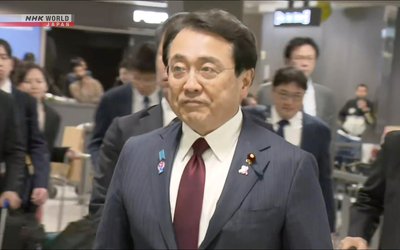
Not a single Indian university does figure in the world's top 100 universities. Some which rank along with some of the world's best come from the technology discipline. The IITs have made some mark on the global map, but the rest are nowhere to be noticed globally. The one, arguably the most prominent with a sort of brand name, has long been the University of Delhi (DU). But the best university of the world's second most populous country was recently embroiled in a controversy it could have avoided.
The DU rolled back its controversial Four Year Undergraduate Program (FYUP) last month after a lengthy standoff with the University Grant Commission (UGC). The roll back came after the regulatory body decided that FYUP was not in consonance with the National Policy on Education, 1986 and the 10+2+3 structure envisaged under it. The 70 odd colleges of DU were subsequently ordered to scrap the program.
Although voices of protest against the program had always subdued its advantages, it’s relevance remains debated. One thing is for sure. The scrapping of FYUP, which was introduced only last year, has now left thousands of students in a big quandary. More worryingly, the roll back puts a question mark on the DU’s institutional autonomy in regard to its relationship with UGC and the operation modality of the Indian education system. The impasse also sheds light on the growing politicization of higher education.
A major concern that has surfaced from the standoff is the UGC’s direct interference in the University an authority it does not possess. The UGC has never had the authority to meddle in any University’s program. As per the UGC Act of 1956, it has the mandate ‘of coordination, determination and maintenance of standards in institutions of higher education’ only. In other words, it’s role is to simply issue general guidelines, make suggestions and act against any violation of its norms. The directive to DU, in this context, was not in accordance with the spirit of its own statute. By ordering the University to scrap its existing program, the UGC directly made an attack on the University’s autonomous decision making. The threatening approach (colleges were warned that their grants would be cut if they did not comply with the directive) even underscored the regulatory body’s authoritarian tendencies. It showed that the UGC held no respect for the University’s sovereignty. In a blatant display of disrespect to the Vice Chancellor (VC) Office and other statutory authorities, the UGC issued the diktat directly to colleges surpassing the usual communication protocol. The whole episode not only gave a huge blow to the dignity of the University but also set a dangerous precedent for the future.
The controversy has also brought into light the faulty operation modality of the Indian education system. The FYUP was introduced last year in an attempt to modernize the traditional Indian education system and sync it with the American University system. Critics pointed out that the program was completely ill conceptualized thanks to the haste with which it was introduced. Implemented forcefully without due consultations with major stakeholders, the major problem was the poor course content. Despite big protests and complaints from students the Vice Chancellor (VC) closed the door for dialogue and instead took action against the dissenters. Decision making was confined to the VC Office. The withdrawal of the program showed how the Indian education system has been running in a haphazard way. There was almost no coordination between concerned stakeholders before bringing in such a huge change. How can a premier University attain global standards through such modality?
The UGC – DU tussle also highlighted the increasing politicization of higher education. The FYUP was initiated at the behest of VC Dinesh Singh with the backing from former Congress leaders Kapil Sibal (considered the mind behind FYUP), Montek Singh Ahluwalia and Shashi Tharoor. Interestingly, the UGC was amongst the very few to welcome the FYUP when it was initiated. Despite protests from all corners, it chose not to react negatively on the University’s move. It even maintained that Universities had the right to choose the duration of their academic programs. Just a year later, the regulatory body has made a 180 degree turn. It was evident that the volte face came after the BJP rose to power. The removal of FYUP was one of the core agendas of BJP during the elections. The withdrawal of the Congress-initiated program, thus, was seen as fulfilling one of poll promises. Although the Ministry of Human Resource and Development (MHRD) tried to distance itself away from the matter, the action by UGC was taken under the direction of the government. The FYUP became a case of political expediency. This politicization in a premier university like DU is a dangerous sign for the future.
The face-off has shaken the institutional base of DU and opened the gates for further politicization and intervention. It’s autonomy now remains at big risk. Can a premier University attain global standards this way? At a time when prime minister Narendra Modi has vowed to make India a world power house.
- Ukrainian Crisis And The World (Dis)Order
- Apr 22, 2022
- China’s Cautious Steps In The Graveyard Of Empires
- Aug 18, 2021
- Foreign Aid On The Fence!
- Aug 08, 2021
- Communist Party of China centenary celebrations Reading between the lips
- Jul 14, 2021
- Second Wave Of Covid-19 In India: Deadly Blow To The Economy
- Jun 23, 2021
















